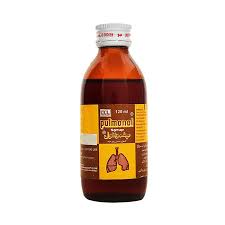Rondec Medication: A Comprehensive Guide

Rondec is a widely used medication in the management of upper respiratory symptoms, particularly for conditions like colds, allergies, and sinus issues. This article will explore what Rondec is, its uses, potential side effects, and important safety considerations. Additionally, we’ll delve into its components, its proper usage, and the role it plays in managing symptoms such as a runny nose, sneezing, and congestion.
What is Rondec?
Rondec is a brand name for a combination medication that is used primarily to alleviate the symptoms associated with the common cold, flu, and allergic rhinitis. It is often prescribed or recommended over the counter for individuals suffering from symptoms like nasal congestion, sneezing, runny nose, and sinus pressure.
The active ingredients in Rondec typically include a combination of a decongestant, an antihistamine, and sometimes a cough suppressant. The precise combination of active ingredients can vary depending on the specific form of Rondec, such as Rondec syrup, tablets, or nasal sprays. The formulation is designed to target different aspects of respiratory discomfort, including congestion, sneezing, and watery eyes.
Active Ingredients in Rondec
The active ingredients in Rondec typically include the following:
- Chlorpheniramine Maleate:
- Chlorpheniramine is an antihistamine that helps reduce symptoms of allergies, such as a runny nose, sneezing, and itching. It works by blocking histamine, a substance in the body that is responsible for allergy symptoms.
- It can also help reduce symptoms related to the common cold, though its primary purpose is to treat allergic reactions.
- Pseudoephedrine:
- Pseudoephedrine is a decongestant that works by narrowing the blood vessels in the nasal passages. This action helps to reduce nasal congestion, allowing easier breathing.
- It is commonly found in many over-the-counter cold medications due to its effectiveness in treating nasal stuffiness.
- Dextromethorphan (in some formulations):
- Dextromethorphan is a cough suppressant that works by affecting the signals in the brain that trigger the cough reflex. It is used to reduce the urge to cough, especially in dry, non-productive coughs.
- This ingredient is often included in combination medications for individuals suffering from both congestion and a persistent cough.
Depending on the formulation, Rondec may also contain additional ingredients, such as acetaminophen for pain relief or other compounds designed to soothe irritated throats and reduce inflammation.
Uses of Rondec
Rondec is primarily used for the following purposes:
- Relief from Symptoms of the Common Cold:
- The most common use for Rondec is to alleviate the symptoms of the common cold. This viral infection often causes a range of uncomfortable symptoms, including nasal congestion, a runny nose, and sneezing. Rondec helps reduce these symptoms, making it easier for individuals to manage daily activities while they recover from the infection.
- Allergic Rhinitis:
- Rondec is also helpful for individuals who suffer from allergic rhinitis (hay fever), which is triggered by allergens such as pollen, dust mites, and pet dander. The antihistamine in Rondec works to block histamine, the chemical responsible for the allergy symptoms like sneezing, itching, and nasal congestion.
- Sinus Pressure:
- For individuals experiencing sinusitis or sinus pressure, Rondec can provide symptomatic relief. The decongestant effect of pseudoephedrine helps clear up blocked sinuses, reducing discomfort.
- Cough Suppressant:
- In formulations containing dextromethorphan, Rondec is also effective at suppressing dry, hacking coughs. This can be particularly useful for individuals whose coughs are persistent and cause significant discomfort or disturbance.
How to Use Rondec
Rondec is available in various forms, including tablets, syrup, and nasal sprays. The method of administration will depend on the specific form prescribed or purchased. Here is a general guide to how each form should be used:
- Tablets:
- Rondec tablets are typically taken orally with a glass of water. The exact dosage will depend on the individual’s age and the severity of their symptoms. It is important to follow the directions on the packaging or as prescribed by a healthcare provider.
- The typical dosage for adults is one tablet every 4 to 6 hours, though this may vary depending on the specific formulation.
- Syrup:
- Rondec syrup is usually taken orally as well, with the dosage based on body weight or age. The syrup form is often more suitable for children, though the dosage will be clearly marked on the label or prescription.
- The syrup should be measured carefully using the provided dosing device to ensure the proper amount is administered.
- Nasal Spray:
- If Rondec is used in the form of a nasal spray, the instructions should be followed closely. Typically, individuals would spray a few pumps into each nostril as directed, avoiding overuse to prevent irritation.
- Nasal sprays should not be used for extended periods to avoid the risk of rebound congestion, a condition where nasal passages become more congested after discontinuing use.
- General Tips:
- Rondec should not be used for more than a few days without consulting a healthcare provider, as overuse can lead to side effects or rebound symptoms.
- Individuals should avoid consuming alcohol or sedatives while using Rondec, as the antihistamine can cause drowsiness.
- If symptoms persist after using Rondec for a few days, it is important to see a doctor to rule out other conditions, such as bacterial infections or more severe allergic reactions.
Potential Side Effects of Rondec
Like all medications, Rondec can cause side effects in some people. It’s important to be aware of these side effects and consult a healthcare provider if any of the following occur:
- Common Side Effects:
- Drowsiness: The antihistamine chlorpheniramine can cause drowsiness, which may affect an individual’s ability to perform tasks requiring alertness, such as driving or operating machinery.
- Dry Mouth: This is another common side effect of antihistamines. Drinking water or using sugar-free gum can help relieve this discomfort.
- Nausea and Vomiting: Some individuals may experience mild gastrointestinal discomfort after taking Rondec.
- Dizziness: The sedative effects of the antihistamine component can cause dizziness, especially in older adults.
- Serious Side Effects:
- Rapid Heartbeat: Pseudoephedrine, the decongestant in Rondec, can cause an increase in heart rate. People with a history of heart problems should consult their doctor before using this medication.
- High Blood Pressure: Pseudoephedrine can also raise blood pressure, so individuals with hypertension should be cautious and speak to a healthcare provider.
- Severe Allergic Reaction: Though rare, some people may experience a severe allergic reaction to Rondec, characterized by symptoms such as difficulty breathing, swelling of the face or throat, and severe rash. Immediate medical attention is required if these symptoms occur.
- Long-Term Use Risks:
- Rebound Congestion: Overuse of decongestant nasal sprays or medications that contain pseudoephedrine can lead to rebound congestion, where nasal passages become more congested once the medication is stopped.
- Dependence: There is a risk of becoming dependent on the medication if it is used for long periods or in excess. It is important to follow dosage instructions and only use the medication as prescribed.
Who Should Avoid Rondec?
While Rondec is a safe and effective medication for many individuals, there are certain groups of people who should either avoid it or use it with caution:
- People with Heart Conditions:
- Since pseudoephedrine can raise blood pressure and heart rate, individuals with heart conditions, such as hypertension, arrhythmia, or coronary artery disease, should consult a doctor before using Rondec.
- People with Glaucoma:
- Chlorpheniramine and other antihistamines can increase eye pressure, so individuals with glaucoma should avoid using Rondec unless prescribed by their doctor.
- Pregnant or Breastfeeding Women:
- Pregnant or breastfeeding women should consult their healthcare provider before using Rondec. Some ingredients may not be safe for use during pregnancy or while nursing.
- Individuals Taking Other Medications:
- Rondec can interact with certain medications, particularly other decongestants, antihistamines, and monoamine oxidase inhibitors (MAOIs). It is important to inform your doctor about all the medications you are taking.
Conclusion
Rondec is a popular and effective medication for treating symptoms associated with the common cold, flu, and allergies. It combines an antihistamine, a decongestant, and sometimes a cough suppressant to provide relief from symptoms such as congestion, sneezing, runny nose, and coughing. While generally safe, Rondec can cause side effects, particularly if used improperly or for extended periods. Always follow dosage instructions and consult with a healthcare provider if you have any concerns or pre-existing medical conditions.
When used correctly, Rondec can help individuals find relief from their respiratory symptoms, making it easier to rest and recover from illness. As with all medications, it is important to be mindful of potential side effects and to seek medical advice when needed.





